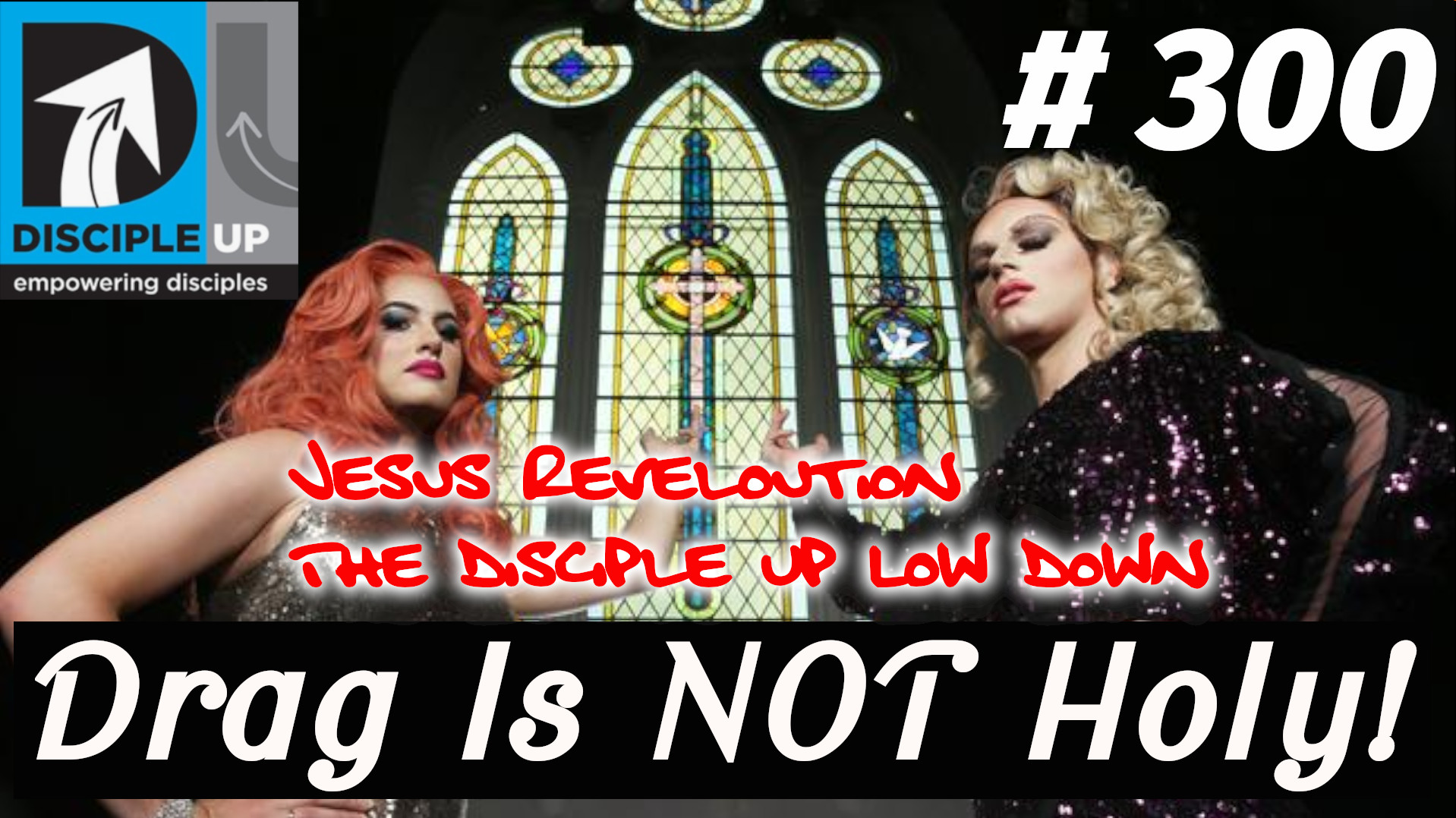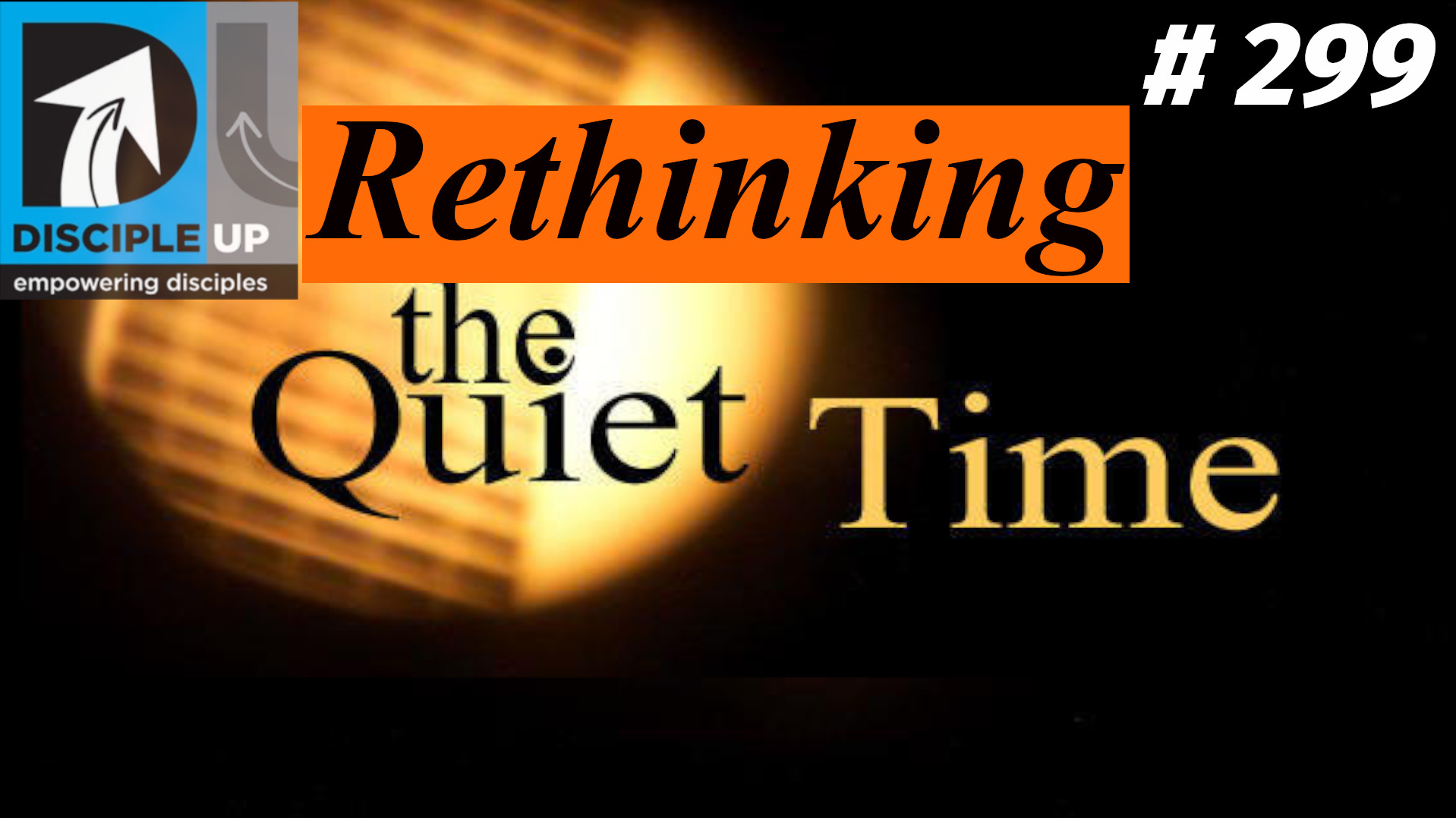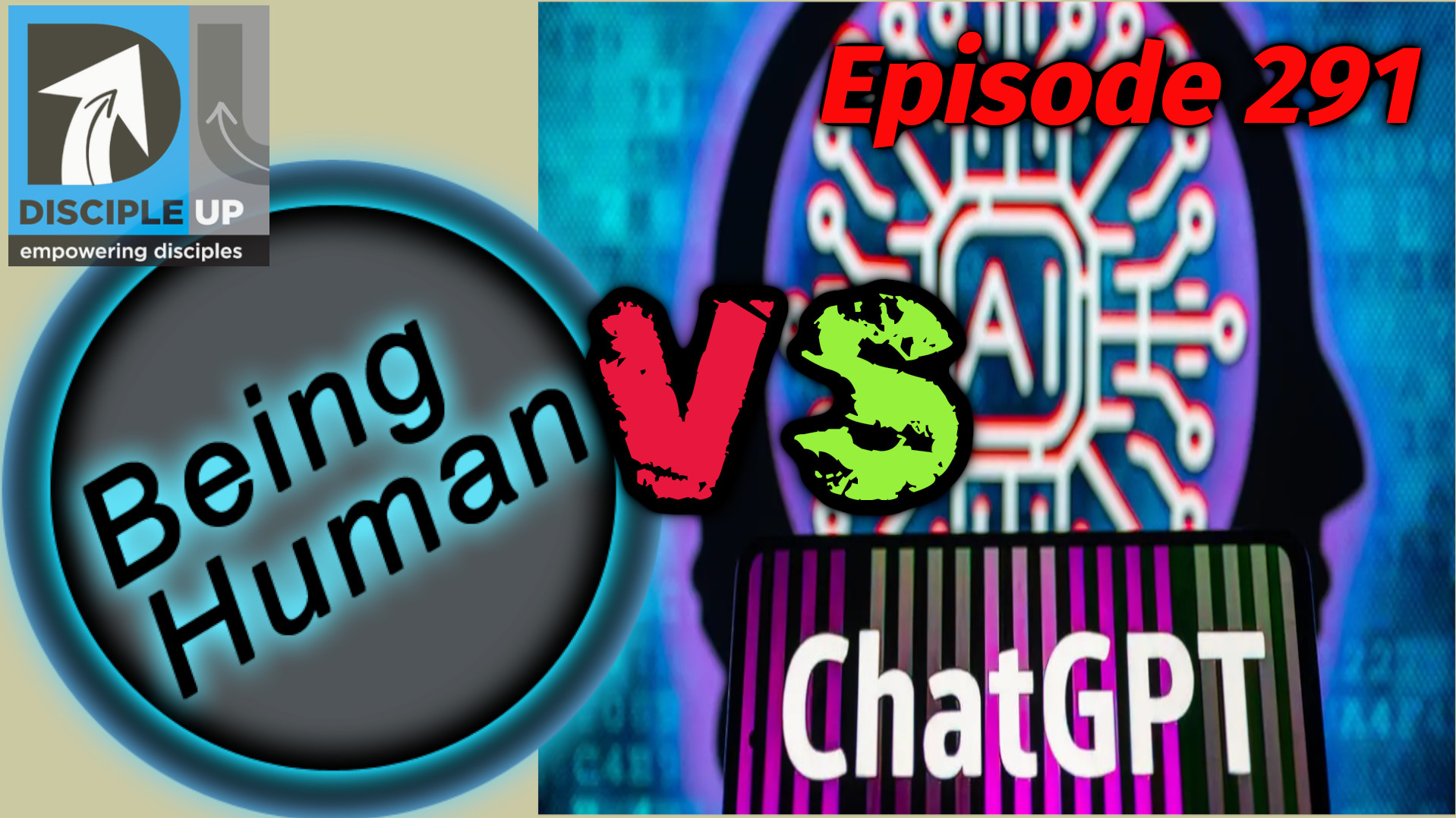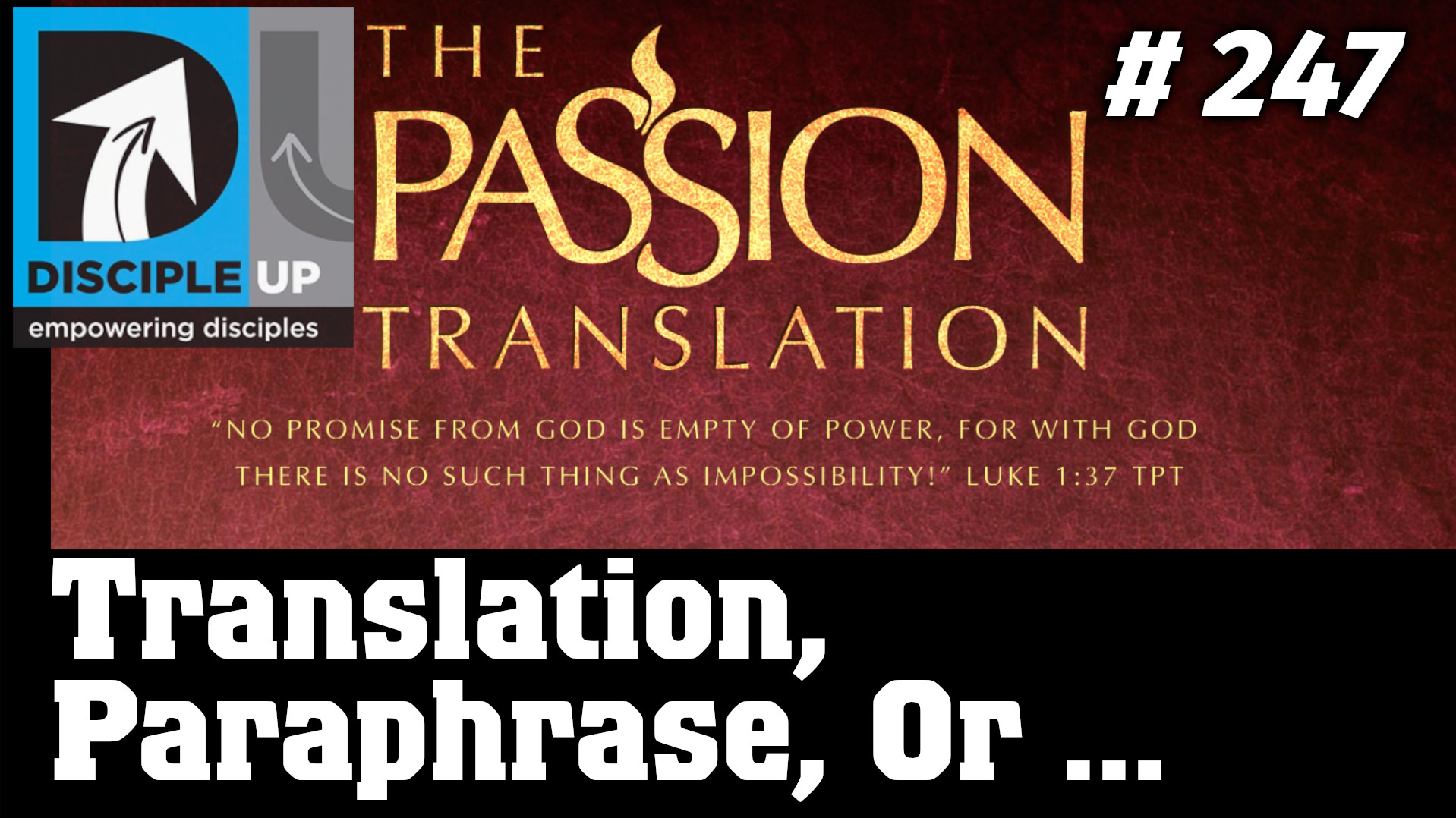Disciple Up #300
God In Drag – Drag Is Holy?
By Louie Marsh, 3-29-2023
Link to article below: https://hotair.com/david-strom/2023/03/21/oh-my-god-n538175
Oh. My. God.
DAVID STROM 12:31 PM on March 21, 2023
I am not a theologian, nor do I play one on TV.
I didn’t even stay in a Holiday Inn Express.
Still, as a convert to Catholicism, I was catechized as an adult, and have a passing familiarity with Christian theology. I also, I hope, am not a complete idiot, and it takes a complete idiot to take the new theology being pushed by the Left seriously.
Two different videos I ran across inspired me to write this piece. The first was a video of a progressive preacher explaining why drag performances are holy. Not just acceptable. Not even a wonderful expression of the diversity of human experience.
Holy.
‘Drag is holy’? Get help buddy. pic.twitter.com/l8tmlOfAsE
— 🇦🇺🇳🇿 ♀️Emma ♀️ 🇭🇺🇬🇧 (@TheCynicalHun) March 20, 2023
Holy doesn’t just mean “good,” “fun,” or even “excellent.” It means sacred. As in a sacrament. It has a specific theological meaning that even those with the meanest of intelligence should be able to understand. Certainly, a pastor should be able to.
But no. This particular pastor, The Rev. Dr. Caleb J. Lines, believes that Jesus is God in drag, and hence drag is holy.
At first, I was certain this was a parody since no Christian pastor (nor, I would imagine, any other person schooled in any of the Abrahamic faiths) could possibly make this argument. Jesus is God in drag? Who would say that?
But no, this dude is real, and people actually pay attention to him.
The Rev. Dr. Caleb J. Lines is an ordained minister with standing in the Christian Church (Disciples of Christ) and the United Church of Christ. He currently serves as the Senior Minister of University Christian Church in San Diego, as the Co-Executive Director of ProgressiveChristianity.org, and as the Co-Host for “The Moonshine Jesus Show.” He has a passion for pursuing social justice for the marginalized, demonstrating the Good News of God’s radically inclusive love, and proclaiming a relevant message for today’s ever-changing world. At the time he was called to his current church, Caleb was the youngest Senior Minister in his congregation’s history. Within three years, the congregation had already grown by over 50% and experienced much revitalization; a trajectory that continues.
Caleb’s views on the intersection of religion and public life have been featured in diverse publications, such as The Nation Magazine, The Economist, The LA Times, Disciples News Service, Chalice Press, The Christian Left, The Coalition to Stop Gun Violence, The Center for Prophetic Imagination, the Convergence Leadership Project, and Sojourners. He currently serves on the national boards of ProgressiveChristianity.org and Jubilee USA Network. Caleb has served churches and nonprofits in Missouri, Connecticut, and Washington, D.C. Caleb is the author of The Great Digital Commission: Embracing Social Media for Church Growth and Transformation (Cascade Books, 2021), which quickly reached #1 on Amazon’s New Releases for Church Growth and was awarded a Silver Medal Illumination Book Award in Ministry/Mission.
So Caleb has some minor claim to fame, and clearly, there is some real money behind him and his message.
Drag is holy. Jesus is God in drag.
Lord help us.
PLAY VIDEO, the response.
Drag is Holy
Jesus mother hen – “37“O Jerusalem, Jerusalem, the city that kills the prophets and stones those who are sent to it! How often would I have gathered your children together as a hen gathers her brood under her wings, and you were not willing! 38See, your house is left to you desolate. 39For I tell you, you will not see me again, until you say, ‘Blessed is he who comes in the name of the Lord.’ ”” (Matthew 23:37–39, ESV) Jesus does NOT call himself a hen!
Gender is a construct –this man doesn’t know what a metaphor is!
Jesus can be a mother-hen you can dress in drag.
Jesus was, and humanity is, God in drag. – Jesus was God in human flesh and ONLY Jesus was, this statement is a form of what I’ll call double blasphemy!
For all of you in the back…
JOHN MCARTHUR VIDEO ON JESUS MOVEMENT
Hippies come from San Francisco to Southern Cal and join Calvary Chapel.
Partly true, but there were hippies in SoCal then as well.
Drug-induced young people – They joined Calvary Chapel AFTER they got saved and quit doing drugs!
Hymns went out, suits went out – No where in the NT are we commanded to dress up for church. In fact, the very little that is said about it would lead you to go in the direction of being casual not dressy!
“9likewise also that women should adorn themselves in respectable apparel, with modesty and self-control, not with braided hair and gold or pearls or costly attire, 10but with what is proper for women who profess godliness—with good works.” (1 Timothy 2:9–10, ESV)
For the first time in church history the conduct of the church was conformed to a sub culture.
What does he think Evangelicalism is? IT’S A SUB CULTURE! This is also false historically as the church has often conformed to subcultures to reach them for Christ.
“19For though I am free from all, I have made myself a servant to all, that I might win more of them. 20To the Jews I became as a Jew, in order to win Jews. To those under the law I became as one under the law (though not being myself under the law) that I might win those under the law. 21To those outside the law I became as one outside the law (not being outside the law of God but under the law of Christ) that I might win those outside the law. 22To the weak I became weak, that I might win the weak. I have become all things to all people, that by all means I might save some. 23I do it all for the sake of the gospel, that I may share with them in its blessings.” (1 Corinthians 9:19–23, ESV)
Led to the culturally driven and culturally defined, give them what they want…
That’s what he’s doing. He’s harkening back to the 40’s, 50’s, and early 60’s and conforming to that culture, wearing suits, singing hymns, etc. Do you think the Apostle Paul wore suits? The hymns he’s talking about are around 300 years old at best. He’s just as much, IF NOT MORE, a captive of his traditional culture as Calvary Chapel, etc. is of theirs.
Lonnie Frisbee who led the Jesus movement, and died of AIDS…
Lonnie didn’t lead it. It had no one leader, and Lonnie was only around for about a year or two before he took off. I was involved in the Jesus movement in PHX and I had never heard of Lonnie until years later. If you were going to pick one person who had the most influence upon the movement, at least in the Western United States, if would have been Chuck Smith.
Timothy Keller: His Spiritual and Intellectual Formation
Collin Hansen
So when counterculture youth found Jesus, whether through street evangelism or makeshift communes or rock concerts, they didn’t want to put on a suit or pantyhose and wait for Sunday morning. Many found their way to Sproul in Ligonier Valley instead.
The same movement sent young adults to the Swiss Alps in search of truth with Francis and Edith Schaeffer at L’Abri. They weren’t pining for the 1950s. They wanted a vibrant relationship with God, along with the music and dress and art of the bohemian avant-garde. The Schaeffers gave them cutting-edge culture, but not for its own sake. They got Jonathan Edwards and Abraham Kuyper—an entire Reformed worldview—in the vernacular of Andy Warhol and Paul McCartney, from Francis Schaeffer,
Please Get In Touch!
Email – louie@discipleup.org

Check out the Disciple Up Facebook page:
My books –

















